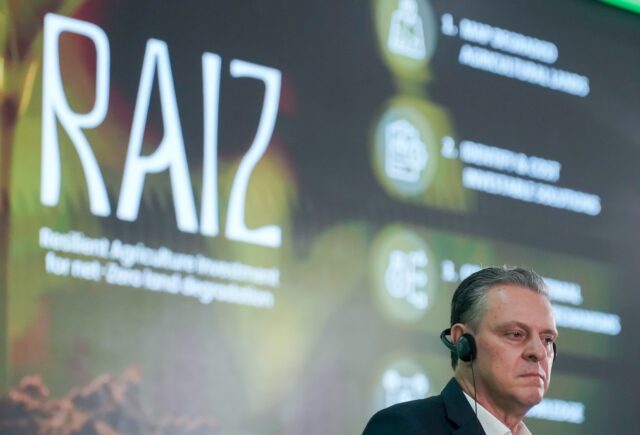A new report outlines the growing momentum among Dutch institutional investors in embracing impact investments. Although more asset owners are committing to a 10% target, some barriers remain.

Dutch institutional investors have made progress when it comes to allocations to impact investing, increasingly committing to a 10% target, but more needs to be done if they are to play a key role in achieving the UN Sustainable Development Goals (SDGs), according to the Netherlands Advisory Board on impact investing (NAB).
In a new report on the state of the sector in the country, the NAB concludes that the average allocation to impact-related investments has increased. But it says institutions are not scaling up rapidly enough to meet targets it set in a 2022 report, in which it called for Dutch pension funds, asset managers, insurance companies and banks to allocate at least 10% of their assets under management (AUM) to impact investments by 2025. It also set a target of a 4% impact allocation to emerging markets by 2030.
“Our analysis shows that while some progress has been made, institutional investors are not yet allocating enough to achieve the SDGs,” said Simona Benvenuti, director of the ‘10% Target Program’.
10% target
Investors still face significant hurdles such as market inefficiencies, traditional investment mindsets, and regulatory constraints. In an effort to ease the blockages, the organisation has developed a ‘10% Target Program’, which it hopes will lower the barriers to impact investing for institutional investors and develop realistic solutions that align financial returns with positive social and environmental outcomes.
The 2022 research, which was based on 2020 data, indicated investors were allocating an average of 4%-6% of AUM to impact investing. The NAB says this allocation share has increased since then, but that a change in the way it analysed the data for the current report reveals a more nuanced picture.
Previously, the NAB combined impact-aligned investments, impact-generating investments and sustainable development investments (SDIs) into one “impact investing” classification. In the 2024 report, this data has been separated out to take account of the difference in impact levels that can accurately be attributed across the categories.
The NAB classifies just 0.5% of the researched AUM as impact-generating investments with proven investors’ additionality, and 1.3% as being at least impact-aligned.
SDIs account for 11.2% of total AUM. These investments are designed to contribute to reaching the UN SDGs, but the NAB says their impact in terms of additionality and other measures is not sufficiently clear from current reporting to be confidently classified as impact investments, even though some elements would be.
The NAB advocates for greater transparency in public disclosures to better assess which portion of the SDIs qualify as impact investment. It also suggests some institutional investors may be influenced by “green hushing”, underreporting positive environmental and social impacts of investments to avoid scrutiny or criticism.
“This is a missed opportunity for leading impact investors to play an inspirational role on the rest of the sector by showing the impact they achieve alongside a financial return,” the report says.
Impact frontrunners
A number of institutional investors have already announced they are adopting the 10% target. The NAB notes both a.s.r. and Achmea have done so in recent months and urged others to follow suit. It also identified several other frontrunners.
“Organisations such as Triodos IM and ASN Impact Investors have sustainability embedded in their mission and PGGM and APG already allocate around 20% of their assets towards SDIs. Among the banks, Triodos Bank and ASN Bank clearly stand out above the rest, having sustainability and impact as their trademark,” according to the report.
To encourage moves towards its 10% target, the NAB recommends that policymakers develop stable, long-term policies to support and encourage impact investing, and integrate impact considerations into broader government initiatives.
It suggests that the impact investing community itself should refine its definition of impact investing, foster cooperation and knowledge-sharing, and support efforts to harmonise international reporting standards.
The NAB says it plans to continue working closely with institutional investors to reduce barriers and support them in reaching impact targets, and that it would also explore the possibility of increasing its ambition to help create more additional, impact-generating investments.
The article was edited at 12:30 CET on 24 September 2024.






